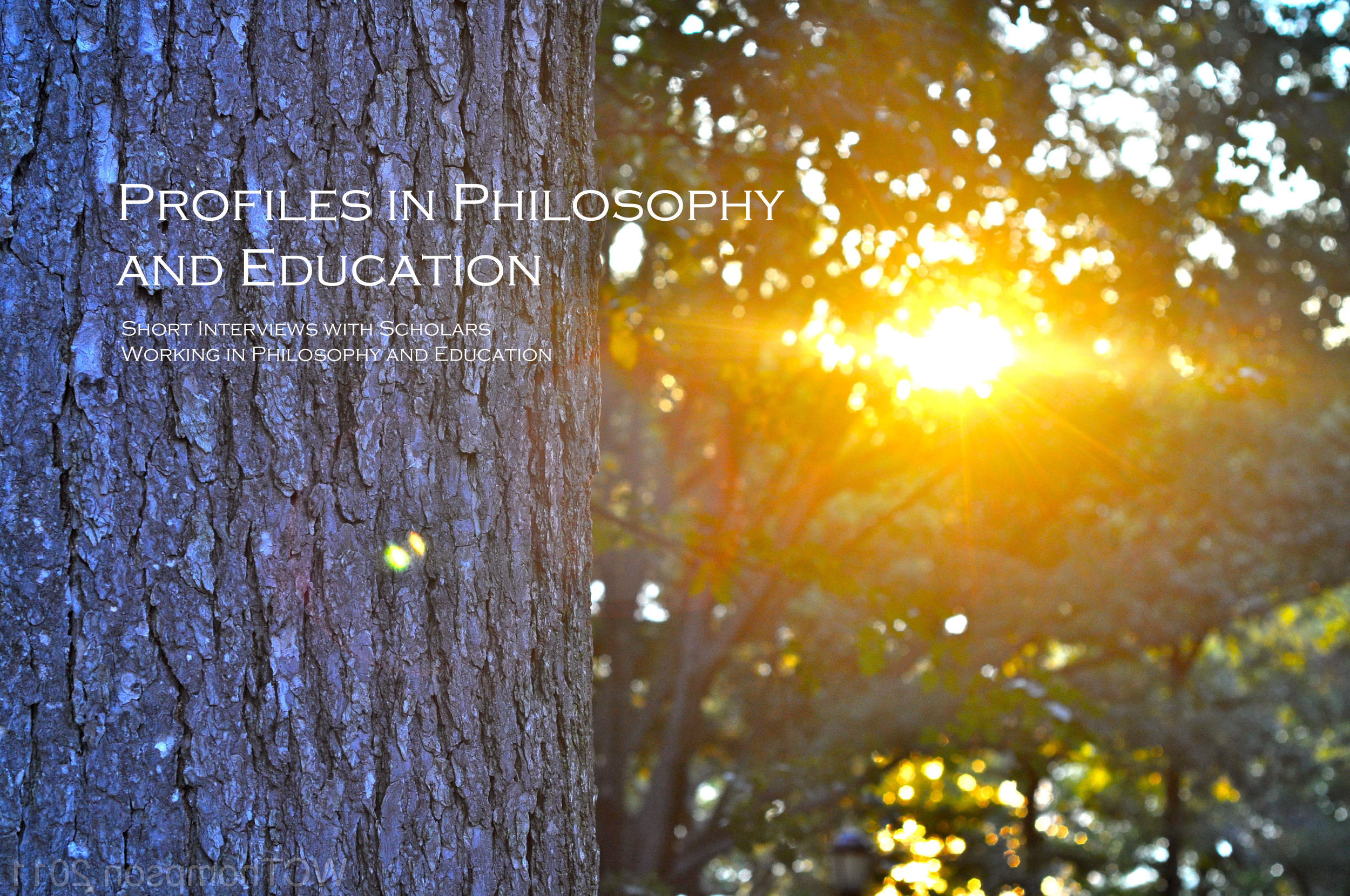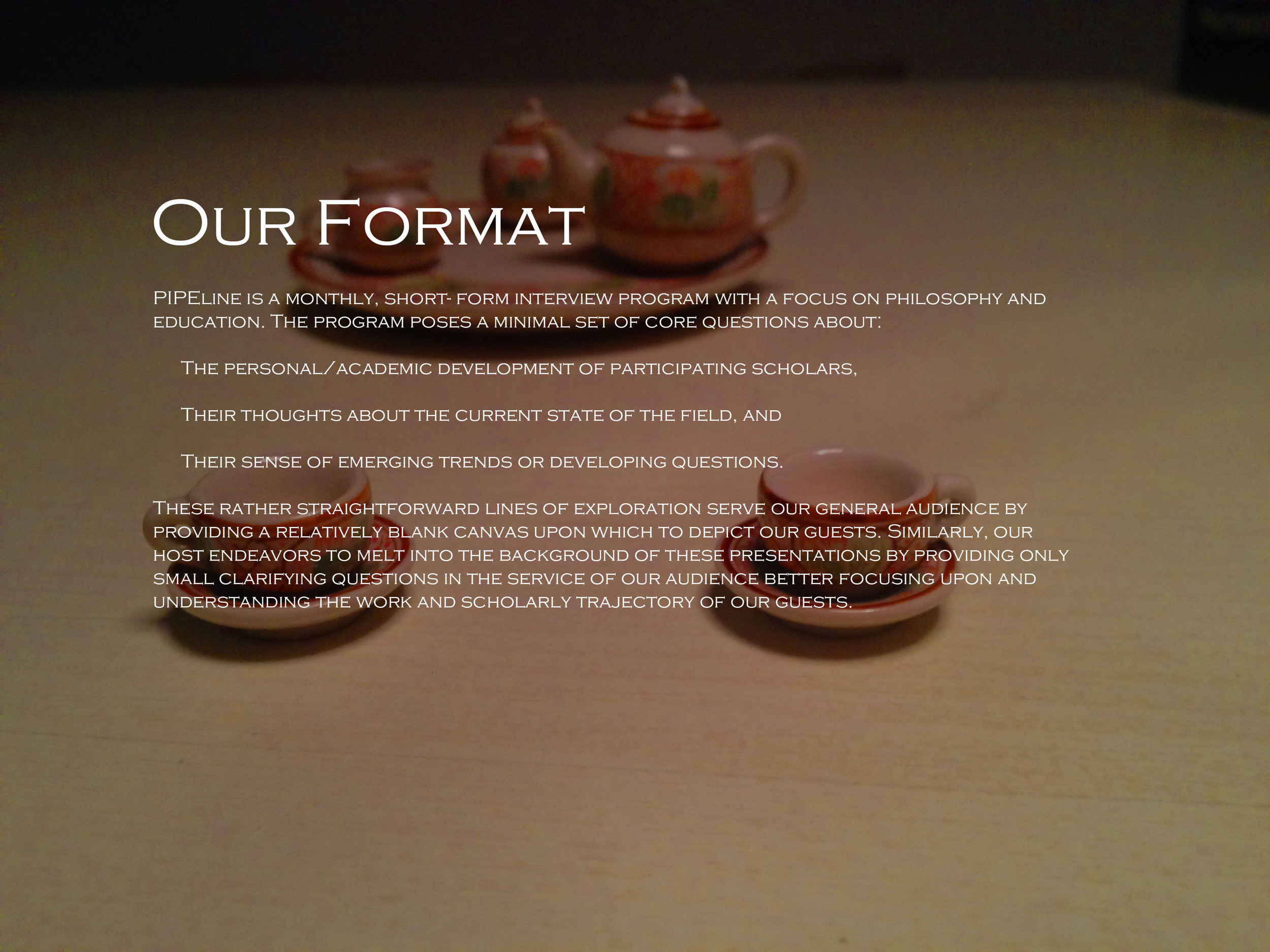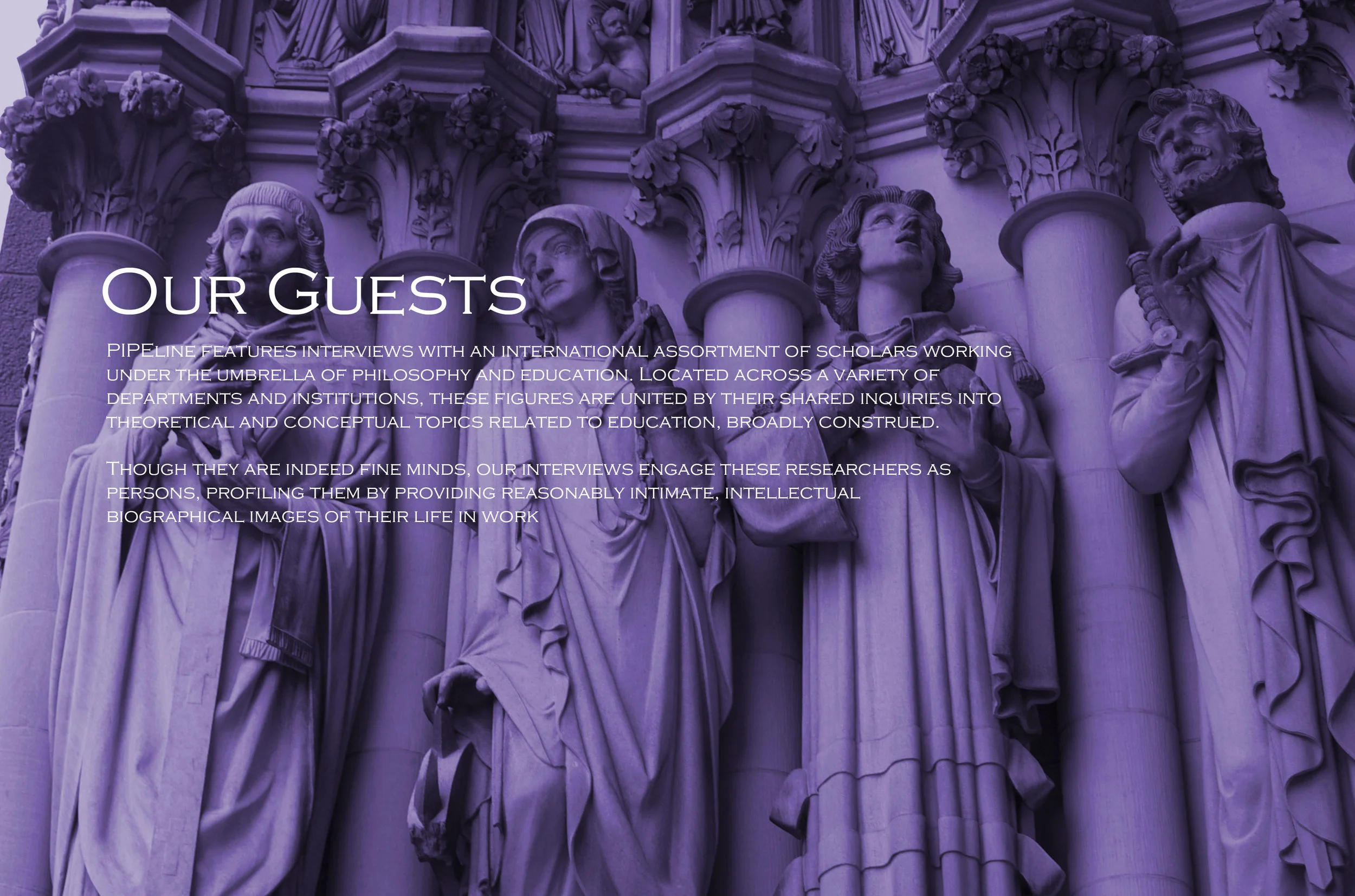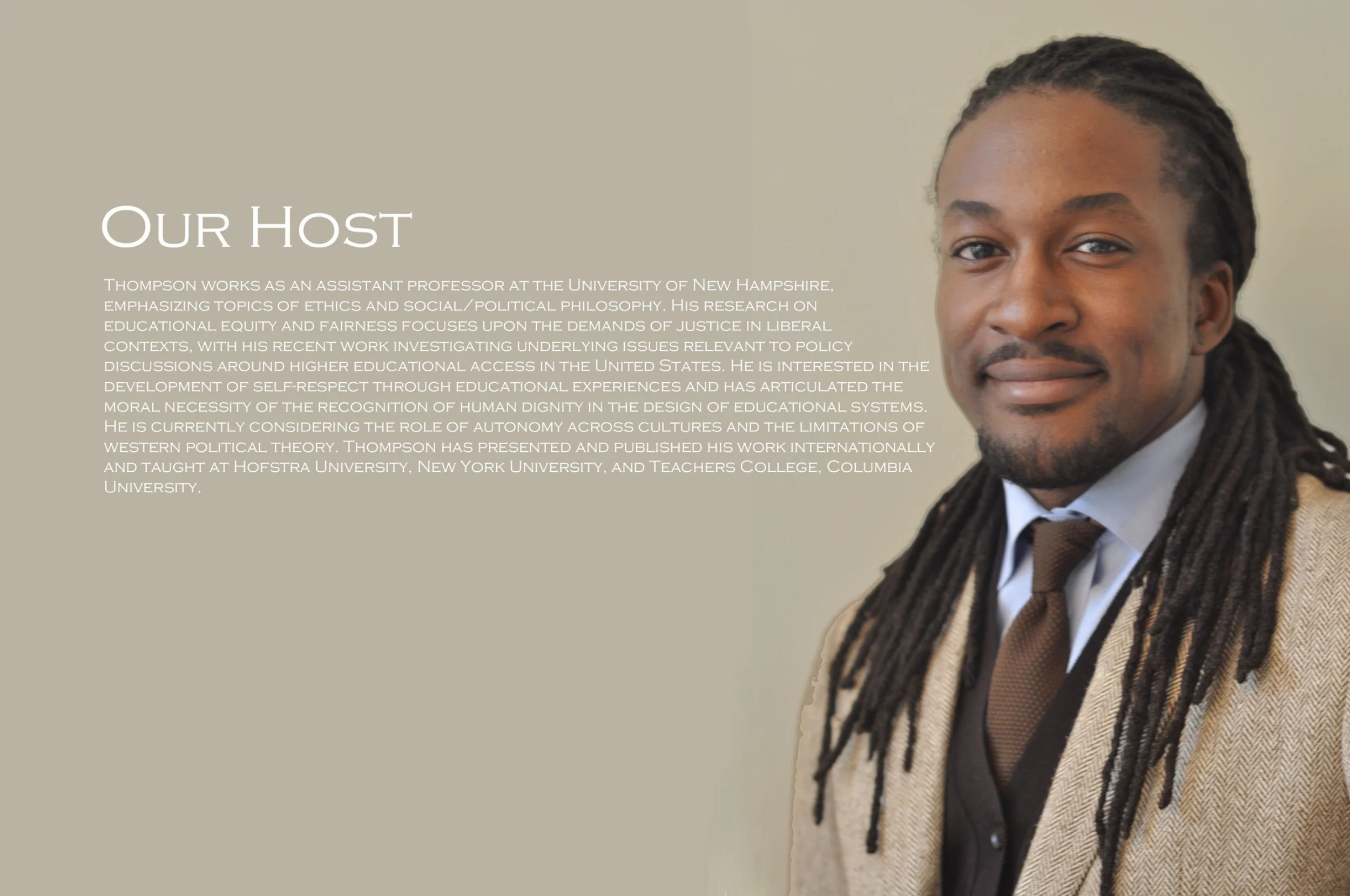





Welcome
Short Interviews with Scholars
Working in Philosophy and Education
Welcome
Short Interviews with Scholars
Working in Philosophy and Education
Special Announcement
You will automatically receive new episodes of PIPEline as they are published.
By subscribing on your portable device (phone, digital audio player, etc.) you can immediately listen to new episodes even when you are away from your computer.
Listen to previous episodes as you wait for the next interview to be published.
Whether you are new to PIPEline or have been a listener since the beginning, you will be able to enjoy specific interviews from past installments of the series.

Our Format
PIPEline is a monthly, short-form interview program with a focus on philosophy and education. The program poses a minimal set of core questions about:
The personal/academic development of participating scholars,
Their thoughts about the current state of the field, and
Their sense of emerging trends or developing questions.
These rather straightforward lines of exploration serve our general audience by providing a relatively blank canvas upon which to depict our guests. Similarly, our host endeavors to melt into the background of these presentations by providing only small clarifying questions in the service of our audience better focusing upon and understanding the work and scholarly trajectory of our guests.
Our Format
PIPEline is a monthly, short-form interview program with a focus on philosophy and education. The program poses a minimal set of core questions about:
The personal/academic development of participating scholars,
Their thoughts about the current state of the field, and
Their sense of emerging trends or developing questions.
These rather straightforward lines of exploration serve our general audience by providing a relatively blank canvas upon which to depict our guests. Similarly, our host endeavors to melt into the background of these presentations by providing only small clarifying questions in the service of our audience better focusing upon and understanding the work and scholarly trajectory of our guests.
This collection ought to be of interest to many groups
For Students
Students of education are often quite perplexed by the idea of the philosophical study of education. This series aims to reduce that mystification by introducing students to current figures and ideas in these traditions. Additionally, as each interview offers fresh questions of study, students may see PIPEline as a pathway towards their own future work in philosophy of education.
For Scholars
Whether one works on philosophical questions of education, non-philosophical research in education, other topics in philosophy, or none of the above, the program provides an introduction to thinkers and ideas that may be generative to one's ongoing research or teaching. Listening to each episode is an invitation to engage with the centrally important questions posed by philosophy of education.
For a Sense of the FielD
This compilation represents a historical archive of some of the contemporary contours of work in philosophy of education. While important for a number of reasons, this documentary component of the project records more than the scholarly ideas of our guests; it depicts perspectives of persons that may not always be seen in the body of journal articles and books that are presumed to define a researcher's career. Though not full portraits, these profiles form a unique view of a field.

Our Guests
PIPEline features interviews with an international assortment of scholars working under the umbrella of philosophy and education. Located across a variety of departments and institutions, these figures are united by their shared inquiries into theoretical and conceptual topics related to education, broadly construed.
Though they are indeed fine minds, our interviews engage these researchers as persons, profiling them by providing reasonably intimate, intellectual biographical images of their life in work.
Our Guests
PIPEline features interviews with an international assortment of scholars working under the umbrella of philosophy and education. Located across a variety of departments and institutions, these figures are united by their shared inquiries into theoretical and conceptual topics related to education, broadly construed.
Though they are indeed fine minds, our interviews engage these researchers as persons, profiling them by providing reasonably intimate, intellectual biographical images of their life in work.
Please feel free to anonymously suggest a scholar for a future interview.

Our Host
Thompson works as an assistant professor at the University of New Hampshire, emphasizing topics of ethics and social/political philosophy. His research on educational equity and fairness focuses upon the demands of justice in liberal contexts, with his recent work investigating underlying issues relevant to policy discussions around higher educational access in the United States. He is interested in the development of self-respect through educational experiences and has articulated the moral necessity of the recognition of human dignity in the design of educational systems. He is currently considering the role of autonomy across cultures and the limitations of western political theory. Thompson has presented and published his work internationally and taught at Hofstra University, New York University, and Teachers College, Columbia University.
Our Host
Thompson works as an assistant professor at the University of New Hampshire, emphasizing topics of ethics and social/political philosophy. His research on educational equity and fairness focuses upon the demands of justice in liberal contexts, with his recent work investigating underlying issues relevant to policy discussions around higher educational access in the United States. He is interested in the development of self-respect through educational experiences and has articulated the moral necessity of the recognition of human dignity in the design of educational systems. He is currently considering the role of autonomy across cultures and the limitations of western political theory. Thompson has presented and published his work internationally and taught at Hofstra University, New York University, and Teachers College, Columbia University.
Winston C. Thompson, Ph.D.
EMAIL
thompson.3588[at]osu.edu
PHONE
1-614-688-3057
ADDRESS
Educational Studies
Ohio State University
Ramseyer Hall, 29 W. Woodruff Ave
Columbus, Ohio 43210

